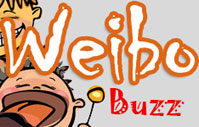Coming to terms with the Chinese-American-English language
Updated: 2011-12-15 14:23
By Brian Salter (chinadaily.com.cn)
|
|||||||||||
I used to think, before coming to work in China, that I would have a hard time coming to grips with the Chinese language. Not just were the sounds so very different to anything I was used to in Europe, but one had to account for the different tones too, not to mention the fact that the language was written in ideograms.
What I certainly had not been expecting, however, was having to relearn?- or at least re-think - the English language that I had grown up with and which, in my ignorance, I had assumed I was pretty 'au fait' with.
The problem arises from the fact that the majority of Chinese people who studied 'my' language have actually learned American-style English from teachers with American accents. And so it is hardly surprising that they speak like a 'Yank' and have difficulty understanding the Queen's English.
As if that isn't bad enough, I find myself practically every day learning new 'English' words and expressions, thanks to my Chinese work colleagues who are surprised to find I don't understand some of the expressions they regard as normal.
Things aren't made any easier when I am left wondering whether a passage in English has been translated from its original Chinese using Google translate (or some other computer-generated translation) rather than using a new Americanism I have not yet come across.
In fact, this reliance on technology may well be one of the main reasons that 'Chinglish' is alive and flourishing in China. 'Chinglish' is a charming fusion of English and Chinese that reflects the inventiveness that results when two different languages collide.
It is widely found on public notices in parks and at tourist sites, on menus, at airports, on street signs and even in official tourist literature. Many of the best examples of Chinglish are simply delightful and the 'language' has attracted a cult following, with a Facebook group, Flickr pages and even books and web sites dedicated to the subject. The 'Save Chinglish' Facebook group has attracted more than 8,000 members and more than 2,500 Chinglish examples, while members of the Flickr group - The Chinglish Pool - have contributed more than 3,000 photographs.
These outpourings echo a genuine affection for Chinglish, rather than an object of fun. The beauty of the Chinese language is reflected in the construction of sentences that in English would have no beauty incorporated in them at all. While some sentences are translated word-for-word without due regard for the overall meaning, and at the same time words with dual meanings are used out of context, coupled with misspellings and grammatical mistakes, the end result reflects a charm that would be difficult for any Westerner to make up himself.
Examples are numerous. "To take notice of safe: The slippery are very crafty" reads one notice, instead of "Be careful, road slippery".
On a Chinese airplane, someone reported that they were given a wet wipe labeled "Wet turban needless wash", instead of "wash-free moist towel").
A Beijing ice-cream shop proudly displays its 'three testes ice cream'?- an unfortunate corruption of "three tastes" ice cream, which would normally be called 'Neapolitan' in the West.
My local supermarket displays a notice above an aisle with the word 'Bumpf' written on it. Bumpf is actually a shortened form of the slang term 'bumfodder' meaning 'toilet paper', which is not used in polite society in England, although its other use meaning ‘useless documents’ is perfectly acceptable. But it is perfectly clear to me where I need to go to find a packet of loo paper. (‘Loo’, by the way, is one of those English terms that Americans laugh at us about. It comes from an expression used in the Middle Ages: 'Garde de l'eau' shouted when the contents of a night-time bed-pan were literally thrown out the window in the morning!)
England and America may well be 'two countries separated by a common language', but with 400 million native English speakers in North America and Europe, and probably a further 400 million Chinglish speakers in China, one wonders what international English is going to look and sound like in 50 years' time!
The author is an editor at the China Daily website.




